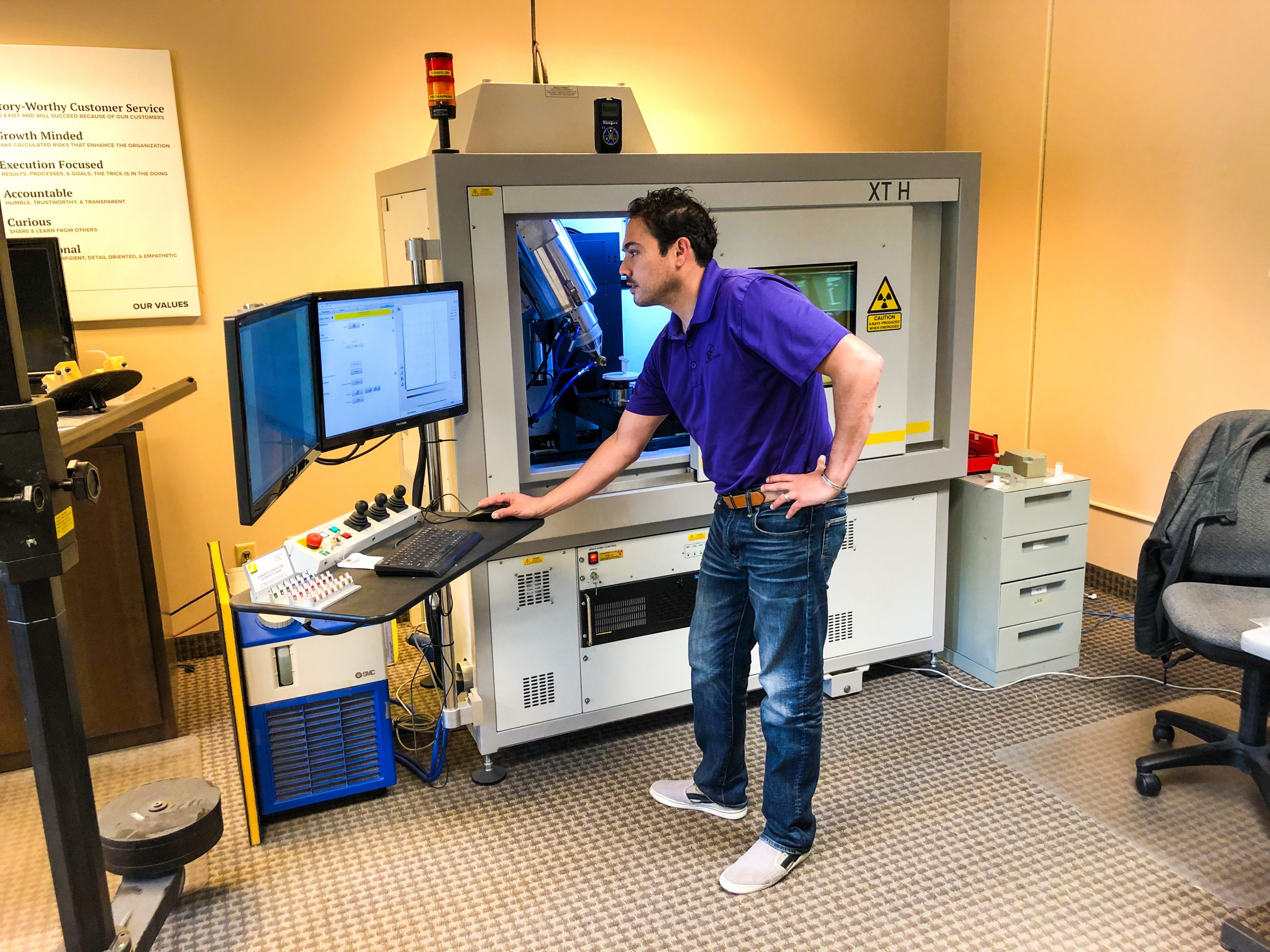Top 10 Questions to Ask When Evaluating Lab Service Providers

Making the World Safer is our mission at Industrial Inspection & Analysis (IIA), and we are committed to maintaining the highest standards of safety, quality and service in laboratory testing. As one of North America’s premier providers of laboratory services, IIA offers these Top 10 Questions to ask when evaluating potential testing providers.
Is your lab accredited?
First and foremost, you want to be sure you are working with a lab that is accredited by the appropriate governing body. ISO/IEC 17025: 2017 specifies the general requirements for the competence to carry out tests and/or calibrations, including sampling. It covers testing and calibration performed using standard methods, non-standard methods, and laboratory-developed methods. IIA labs are ISO/IEC 17025:2017 accredited and hold additional accreditations such as NADCAP and ITAR, as well as some customer-specific accreditations.What standards do you test to?
Different standards apply to different types of testing services. It’s important to make sure that potential providers have an in-depth understanding of all applicable regulations and standards affecting your project.The Lab Services team at IIA tests to numerous American Society for Testing and Materials (ASTM) standards, as well as a myriad of other standards governing different types of testing, such as mechanical, chemical and environmental. We can add additional testing standards to our repertoire fairly easily to meet the needs of your project. Rest assured that our skilled technicians have a complete understanding of the regulations and requirements affecting your product.
Are your technicians certified?
It is critical that testing be performed by trained and qualified personnel. Depending on the type of testing, technicians may or may not require certification. Ask potential providers about their technicians’ qualifications to complete your job.IIA maintains a robust training program to meet or exceed requirements outlined by the American National Standards Institute (ANSI) and other governing bodies.
Our team includes experienced and highly skilled technicians with certifications ranging from NDT Levels 1, 2 and 3 to Certified Quality Technician (CQT), Certified Weld Inspector (CWI), Certified Mechanical Inspector (CMI), and many more. All of our personnel are committed to quality and customer service.
What happens if a part fails during testing?
Ask potential providers how they handle a part that fails or other anomalies during testing. IIA’s full menu of services allows us to provide valuable post-project support to clients. When things don’t go as planned, we are equipped to perform more in-depth testing to validate results and understand the nature of the failure.What services does your lab offer?
It’s helpful to know the extent of a provider’s capabilities should you have a need that goes beyond your original testing request. A full-service provider can streamline the testing experience and reduce the paperwork and costs associated with using multiple providers.IIA’s Lab Services division specializes in manufacturing products and processes. We are also experts in a wide variety of laboratory testing, including metrology, dimensional inspection, chemical analysis, metallurgical, non-destructive, mechanical, wireless and telecommunications EMC/EMI, consumer goods, calibration, environmental and more. We can also provide custom solutions, training and product sales to meet the unique needs of our clients.
How fast can you turn my project around?
To ensure that you meet your project’s goals and timelines, ask potential providers how quickly they can turn your project around. At IIA, we understand that time is money, and we strive to be on the forefront when it comes to delivering quality data and value-added services in a timely fashion. Our lead times are negotiable, depending on your need.Can you provide on-site testing services?
In some situations, on-site testing may be more convenient for the client — or the only way to get the data needed. For example, companies may seek on-site services when they need to test parts that are large, heavy or stationary or when there is heightened concern about damage or loss in transit. IIA offers an extensive array of precision on-site measurement services, particularly in the areas of non-destructive testing (NDT) and metrology.Do you keep records of prior years’ test results?
Thorough and complete testing documentation is essential to maintain safety and compliance. It’s helpful to know if inspection providers maintain historical records of your testing in case your internal records ever get lost, misplaced or damaged. In keeping with ISO 17025:2017 requirements, IIA maintains up to 7 years of prior testing records for our clients.Can you provide testing results using our company’s report template?
In some cases, the customer may prefer to have their testing provider use their company’s internal reporting template to deliver test results. At IIA, we tailor our approach to meet each client’s unique needs. If you specify up-front that you prefer to use your own reporting format, we are happy to accommodate that request.Can you help me understand the test results?
Beyond the actual testing, it’s important to consider the communication and support you will receive from a provider to help you understand and interpret test results. IIA provides comprehensive and easy-to-read reports, and we take the time to explain the data to ensure client understanding. We are always available to address customer questions or concerns. At IIA, we aren’t satisfied until you are.
RELATED ARTICLES
Top 10 Questions to Ask When Evaluating Lift Service Providers
Top 10 Questions to Ask When Evaluating Fire Service Providers
Frequently Asked Questions About Fire Services — and Answers from IIA
